Roberta Eaton, aka Robbie Cheadle, shares the third of her posts on the beliefs and myths of her home. Other posts in the series can be found by cicking here: Part One, Part Two, Part Three…
Beliefs and myths of southern Africa – The Zulu
The Zulu-speaking people of southern Africa are descended from the Nguni clan. The Nguni can be divided into four distinct groups: the Northern and Central Nguni (Zulu-speaking), the Southern Nguni (Xhosa-speaking), the Swazi people from Swaziland and the adjacent areas and the Ndebele people of the Northern Province and Mpumalanga.
The Zulu language is part of the Nguni language groups. There are several variations of Zulu spoken in southern Africa. The word Zulu means Sky and is said to be the name of the ancestor who founded the Zulu royal line in approximately 1670.
isiZulu is South Africa’s most widely spoken official language with more than half of the population understanding it. It is a tonal language and is characterized by clicking consonants. As with the other early indigenous languages of southern Africa, it was originally an oral language which started evolving into a written language when the missionaries from Europe arrived.

God and the afterlife
Unkulunkulu, meaning the very great/high one, was the historical Supreme Creator of the Zulu-speaking people. According to mythology, Unkulukulu created the land and water, men and all the animals. He brought men and cattle from an area of reeds.
Like most southern Africa peoples, the Zulus pay tribute to the souls of their dead ancestors. The ancestors are believed to live in the spirit world of Unkulukulu and are regarded as intermediaries between the living and the spirit world. The ancestral spirits are known as amadlozi and abaphansi and make themselves know through dreams, sickness and snakes.
Offerings, commonly in the form of home-brewed beer and animal sacrifices, are made to the ancestors to keep them happy and to ask them for blessings, good luck, fortune, guidance and assistance.
If bad luck occurs, a spiritual healer called a Sangoma, is consulted to determine whether the occurrence is as a result of witchcraft or due to the ancestors feeling neglected or becoming angry. Once a decision as to the cause has been made, either a witch hunt takes place, or a sacrifice is made to appease the ancestors.
Shaka Zulu

Shaka Zulu by James King
The Zulu clan to which Shaka was born in 1787 was small. His father was the chief of his clan and his mother, Nandi, was the daughter of the chief of nearby clan.
Shaka’s father drove his mother and him out of the village when he was a young boy. They were disgraced and Shaka was teased and bullied by the boys in the village where they found refuge. Shaka became tall and strong as he grew older. He was also clever and ambitious. He wanted to be chief someday.
Shaka and his mother became part of the clan of a chief called Dingiswayo and Shaka trained as a warrior. When Shaka’s father died, Dingiswayo helped Shaka to become chief of his father’s clan. When Dingiswayo died, Shaka took control of the surrounding tribes and became a powerful leader in the area.
Ten interesting facts about Shaka Zulu
- Prior to Shaka unifying the various clans that occupied most of modern day KwaZulu Natal, the Zulu’s did not exist as one nation. He was the founder of the Zulu Nation;
- He loved his mother;
- He killed more Zulus than any of his enemies did;
- His capital was called Bulawayo which means “The Place Where They Are Killed;”
- When Shaka went out to conquer other tribes, he spared the San (Bushmen);
- Shaka Zulu did not allow his troops to marry until they had proved themselves in battle;
- He forced his soldiers to go barefoot all the time so their feet would become tough and they would be more agile in a fight;
- Shaka recruited young boys to carry his warrior’s supplies, freeing them up to move quicker from battle to battle;
- He allowed white settlers into his Kingdom; and
- When his mother died he killed many Zulus to mourn her death.
Sources
South African History Online
Myths and Legends of southern Africa by Penny Miller
Wikipedia
Eshowe.com/zulu-beliefs/
www.zulu-culture.zo.za
http://www.krugerpark.co.za/africa_zulu.html
 About the author
About the author
Robbie, short for Roberta, is an author with five published children’s picture books in the Sir Chocolate books series for children aged 2 to 9 years old (co-authored with her son, Michael Cheadle), one published middle grade book in the Silly Willy series and one published preteen/young adult fictionalised biography about her mother’s life as a young girl growing up in an English town in Suffolk during World War II called While the Bombs Fell (co-authored with her mother, Elsie Hancy Eaton).
All of Robbie’s children’s book are written under Robbie Cheadle and are published by TSL Publications. Robbie has recently branched into adult horror and supernatural writing and, in order to clearly differentiate her children’s books from her adult writing, these will be published under Roberta Eaton Cheadle. Robbie has two short stories in the horror/supernatural genre included in Dark Visions, a collection of 34 short stories by 27 different authors and edited by award winning author, Dan Alatorre. These short stories are published under Robbie Cheadle.
Find and follow Roberta Eaton
Roberta Writes Blog Twitter Facebook
While the Bombs Fell
What was it like for children growing up in rural Suffolk during World War 2?
Elsie and her family live in a small double-storey cottage in Bungay, Suffolk. Every night she lies awake listening anxiously for the sound of the German bomber planes. Often they come and the air raid siren sounds signalling that the family must leave their beds and venture out to the air raid shelter in the garden.
Despite the war raging across the English channel, daily life continues with its highlights, such as Christmas and the traditional Boxing Day fox hunt, and its wary moments when Elsie learns the stories of Jack Frost and the ghostly and terrifying Black Shuck that haunts the coastline and countryside of East Anglia.
Includes some authentic World War 2 recipes.
Robbie also writes as Robbie Cheadle
Robbie’s Inspiration Blog Goodreads Facebook YouTube
Amazon author page Twitter: @bakeandwrite
 Books by Robbie and Michael Cheadle
Books by Robbie and Michael Cheadle
The Sir Chocolate books are a delightful marriage of story, verse and cookery
… a perfect recipe for sharing with children. Silly Willy goes to Cape Town tells the adventures of two very different brothers…and includes five party cake ideas.
You can purchase the Sir Chocolate books from:
or you can buy them in South Africa directly from the authors by emailing Robbie Cheadle at sirchoc@outlook.com.

Tell me a story… 
If you are a writer, artist or photographer…If you have a poem, story or memoirs to share… If you have a book to promote, a character to introduce, an exhibition or event to publicise… If you have advice for writers, artists or bloggers…
If you would like to be my guest, please read the guidelines and get in touch!


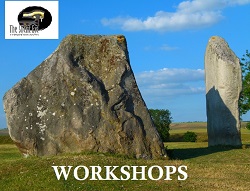



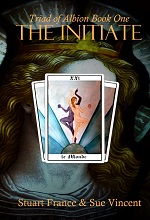


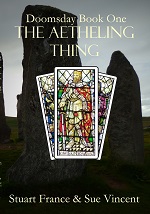
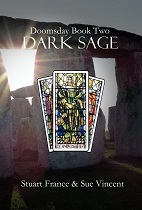
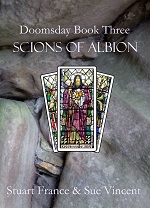
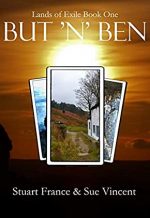






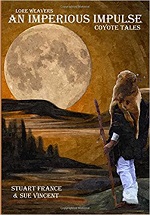


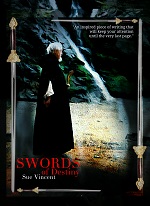

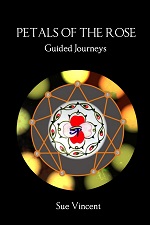






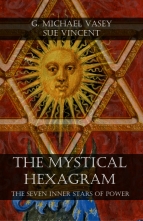

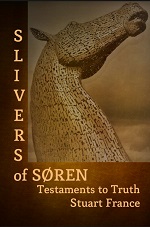


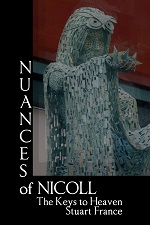


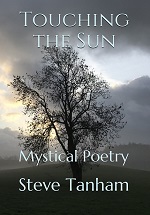

I love this stuff, Robbie. I’ve had a storyboard about an African adventure in colonial times for several years. I think it might offend some modern sensibilities about hunting and mining, so it languishes. I like the close connections to Voodoo in some ways too, and it plays into my wheelhouse as far as writing goes.
LikeLiked by 2 people
I also find it very fascinating, Craig. History is history and can’t be changed, one can always tone down any offensive language. The horrors of hunting seem to have evolved into the horrors of poaching. I read a book on this topic recently.
LikeLiked by 2 people
The fact was that legal hunting wasn’t (and isn’t) horrendous. That’s the hard sell to my modern audience. Poaching, bush-meat, shark finning, etc. are huge problems. Modern people have a hard time seeing the difference.
LikeLiked by 1 person
Shaka Zulu killed more Zulu than his enemies did- what was his reason for this?
I’m surprised he allowed white settlers onto his lands, yet seemed to rule with an iron hand. Interesting post, Robbie, thanks.
LikeLiked by 2 people
Hi Jacquie, Shaka was a despot. If anyone did anything against him he killed them. He killed people as a warning to others not to go against him. When his mother died, he had hundreds of people killed. For a year, every woman who became pregnant was killed. He even had animals who bore calves and young killed during that period. He let the white settlers in as he saw them as a way to entrench his power. He was eventually murdered.
LikeLiked by 2 people
Reminds me of a certain president 🙂
LikeLiked by 1 person
Interesting information, Robbie. Thanks.
LikeLiked by 2 people
Glad you enjoyed this, Darlene.
LikeLiked by 2 people
Thank you, Sue, for having me over with this post. The video is one of my favourites from ipi ntombi. Shaka Zulu has always fascinated me from when I was a young girl.
LikeLike
Thank you very much for continuing to share these posts, Robbie.
LikeLiked by 1 person
Thank you, Robbie, for your wonderful posts and thank you, Sue, for hosting. xxx
LikeLiked by 2 people
I am pleased you are enjoying this series, Adele.
LikeLiked by 2 people
Another fascinating post, Robbie. I wouldn’t like to have crossed Shaka!
LikeLiked by 2 people
Thanks Mary. I wouldn’t have crossed him either although you didn’t have to really do anything to be killed – wrong place, wrong time.
LikeLiked by 2 people
This is so fascinating. Thanks for sharing these with us. I’m really enjoying the history!! 🙂
LikeLiked by 2 people
Thank you, Dorinda. I am so pleased to know that.
LikeLiked by 2 people
You’re welcome 🙂
LikeLike
Reblogged this on Roberta Writes.
LikeLiked by 2 people
Whoops, I was a bit to quick clicking the re-blog button and didn’t get my introduction in. I have updated on my side to include it.
LikeLike
🙂
LikeLiked by 1 person
Reblogged this on DSM Publications and commented:
Meet Guest author, Roberta Eaton from this post on Sue Vincent’s blog.
LikeLiked by 2 people
Thanks for sharing, Don.
LikeLiked by 2 people
You’re welcome
LikeLiked by 1 person
Absolutely fascinating stuff, Robbie. I love anything related to myth and folklore!
LikeLiked by 2 people
Thank you, Mae. African mythology is so different and interesting.
LikeLiked by 2 people
Fascinating, Robbie. I’m always intrigued by the similarities between creation myths and beliefs about the afterlife, even between cultures that had little or no contact. Shaka sounds like a scary, bloody guy, but uniting a nation is a feat. Thanks for sharing the stories and history of your country. Thanks for hosting, Sue. 🙂
LikeLiked by 2 people
Thank you, Diana. I have also noticed the similarities. I went to a Greek funeral this week and was struck by how similar the service seemed to be to a Jewish service (can’t understand Greek or Hebrew so I am meaning with the chanting and style). I am glad you are enjoying these posts. I agree that Shaka did unit the clans and create a powerful nation.
LikeLiked by 2 people
Fascinating!
LikeLiked by 2 people
Glad you enjoyed this, Jennie.
LikeLiked by 2 people
I did, Robbie! Best to you.
LikeLiked by 1 person
Pingback: Guest author: Roberta Eaton ~ Beliefs and myths of southern Africa V: The Venda | Smorgasbord Blog Magazine